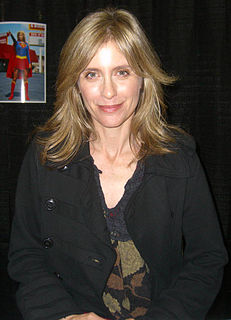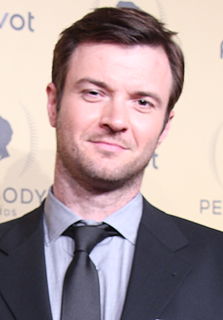A Quote by Stacey D'Erasmo
For the Supreme Court, the right for everyone to say 'I do' is where the story ends, but for artists, it's where the story just starts to get interesting.
Related Quotes
I get up in front of a bunch of kids and say 'Hey, I'm gonna tell you a new story. Who wants to be in a new story?' Well some kid always sticks up their hand and that gives me a name, but it doesn't give me a story. I just say whatever comes to my mind and usually it's not that good. Every once in a while, however, I say something that turns into a really good story.
The notion that the Supreme Court comes up with the ruling and that automatically subjects the two other branches to following it defies everything there is about the three equal branches of government. The Supreme Court is not the supreme branch. And for God's sake, it isn't the Supreme Being. It is the Supreme Court.
Class warfare always sounds good. Taking action against the rich and the powerful and making 'em pay for what they do, it always sounds good. But that's not the job of the Supreme Court. The Supreme Court standing on the side of the American people? The Supreme Court adjudicates the law. The Supreme Court determines the constitutionality of things and other things. The Supreme Court's gotten way out of focus, in my opinion.
Translation is harder, believe it or not. You do have to come up with a story, and actually I'm mystified by that process. I don't exactly know how the story just comes, but it does. But in writing a story that you're inventing, versus writing a story that somebody else has made up - there's a world of difference. In translation you have to get it right, you have to be precise in what you're doing.
You didn't plan to write a story; it just happened. Well, it could be argued that the next thing you should do is find a hole to dig. Right? So you start digging a hole and then somebody brings a body along and puts it in. That's what a story must feel like to me. It's not that you say, "I want to write a story about a gravedigger." But you're walking along and "I don't know what I'm doing here in this story,' and - boop! a shovel. "Oh, interesting. Ok, what does one do with a shovel? Digs a hole. Why? I don't know yet. Dig the hole! Oh, look a body."
I don't particularly like the idea that there's an arc to the story and that therefore in this scene you have to convey this bit of information or emotion. I like more the feeling that, of course, there is a shape to the story, but that each scene should feel right, should be true at that moment, and that gradually you accumulate these moments of truth until you get enough of them together that it becomes a story that's interesting.






































